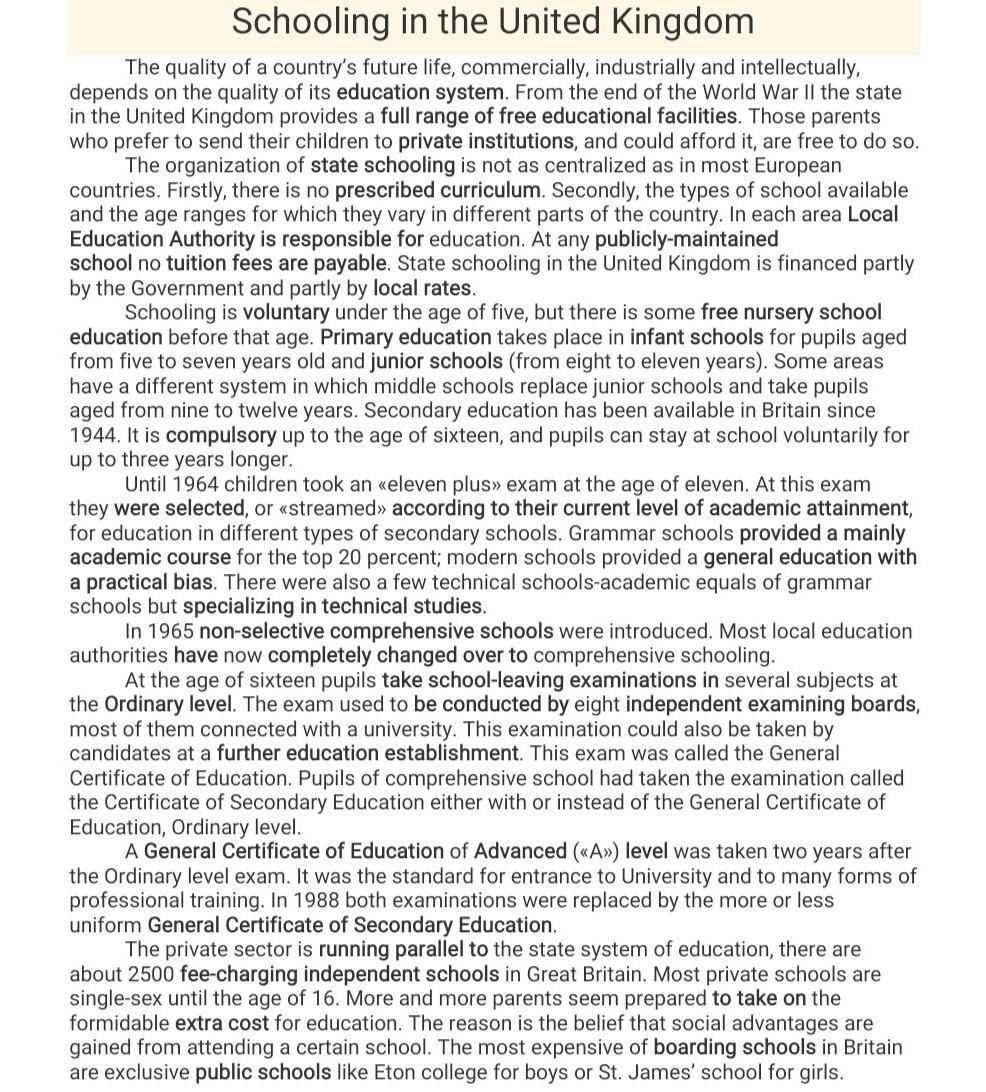Предмет: Английский язык,
автор: bespalanadia527
Допоможіть, БУДЬ-ЛАСКА!!! МЕНІ ДУЖЕ ПОТРІБНО!
Дайте письмові відповіді на запитання.
1. What is State schooling in the United Kingdom characterized by?
2. What are the stages of schooling in the United Kingdom?
3. According to what principles were children streamed until 1965?
4. What kind of school-leaving exams do children take at schools of different types?
5. Why do many parents send their children to fee-paying schools?
Приложения:

Ответы
Автор ответа:
1
1. State schooling in the United Kingdom is characterized by being funded and regulated by the government. It is a system of education that is provided by the state, free of charge, and available to all children.
2. The stages of schooling in the United Kingdom typically include:
- Primary Education: Starting at age 4-5 and lasting until age 11.
- Secondary Education: From age 11 to 16, leading to the completion of General Certificate of Secondary Education (GCSE) exams.
- Post-16 Education: After completing GCSEs, students can choose to continue their education with A-levels, vocational qualifications, or apprenticeships.
- Higher Education: After completing post-16 education, students can pursue higher education at universities or colleges.
3. Until 1965, children in the United Kingdom were streamed according to the "11-plus" examination, which determined their suitability for either grammar schools or secondary modern schools. This system was based on the principles of academic ability and aptitude, and it often resulted in social and educational divisions.
4. In the United Kingdom, children take various school-leaving exams depending on the type of school they attend. For example, students in England take General Certificate of Secondary Education (GCSE) exams, while students in Scotland take the Scottish Qualifications Certificate (SQC) exams. A-levels or equivalent qualifications are taken by students who plan to continue their education.
5. Many parents send their children to fee-paying schools (also known as private or independent schools) for various reasons, including a perception of higher academic standards, smaller class sizes, better facilities, and a desire for a specific educational philosophy or religious affiliation. Fee-paying schools often offer more specialized and individualized education but come with tuition fees that parents are required to pay.
Похожие вопросы
Предмет: Алгебра,
автор: zesu13
Предмет: Українська мова,
автор: bravlstars0123456789
Предмет: Математика,
автор: gvertyhome937
Предмет: Қазақ тiлi,
автор: ayaulym411
Предмет: Биология,
автор: radmilaruminova